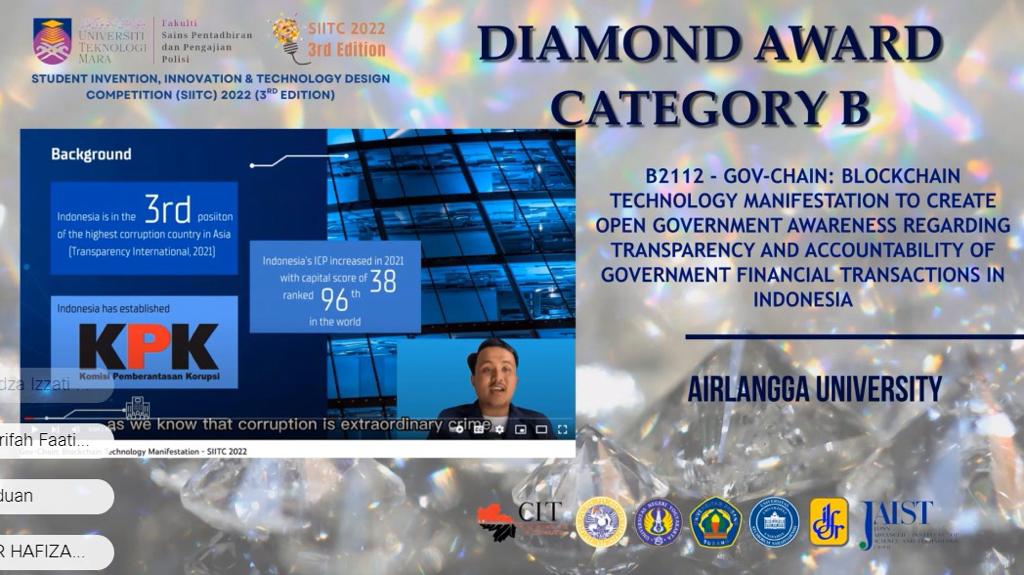UNAIR NEWS – Four students of Public Administration Study Program, Faculty of Social and Political Sciences (FISIP) Universitas Airlangga won the Diamond Award (1st place) and Best Video Award Category B in the Student Invention, Innovation, and Technology (SIITC) Innovation Design Award 2022 competition organized by Universiti Teknologi Mara (UiTM) Malaysia, Friday, December 4, 2022. The four students are Darmawan Tri Pangestu, Dyah Ayu Wiranti, Petrus Protection Zai, and Muhammad Dzulfikar Al Ghofiqi.
For the event themed Empowering Student Through Education and Innovation, the fourth-year students initiated an application called Gov-Chain, an application for recording government financial transactions, which is integrated with blockchain technology.
“It is an application that is integrated with blockchain technology where this application will later be used as an instrument or tool for government transactions,” said Darmawan Tri Pangestu in an interview Friday, December 9, 2022.
This Gov-Chain app allows recording of every financial transaction made by the government. The blockchain technology implemented in the application can reduce the level of manipulation of each history and transaction process.
Furthermore, the public can freely access various government financial transactions with blockchain technology. In other words, this application can be a platform for preventing corruption by recording every financial transaction and providing financial transparency to the public.
“Using cryptography and distributed consensus mechanisms, blockchain provides a unique combination of permanent and immutable record keeping. In addition, transaction transparency and audit capabilities can function automatically,” explained Darmawan.
His team took the initiative to make a corruption prevention application because corruption cases are now one of 10 international issues that keeps happening. Indonesia is also a country that occupies the third position as the country with the highest corruption rate in Asia, based on a survey from Transparency International.
“Even though Indonesia has shown its commitment to eradicating corruption with the establishment of the Corruption Eradication Commission (KPK), in reality, corruption continues to occur on a massive scale. This condition occurs because the state only focuses on cases that have already occurred, not prevention,” said Darmawan.
Through the implementation of the Gov-Chain, Darmawan and his colleagues hope to create an accountable, transparent and organized government budget allocation scheme. Under the guidance of Putu Aditya Ferdian Ariawantara SIP MKP, these four students also hope that their innovations can be applied in administering government in Indonesia.
“Hopefully, this innovation does not just stop at this competition. But it can also be implemented in Indonesia to create better transparency and accountability of government budgets and to be able to reduce acts of corruption,” Darmawan concluded. (*)
Author: Agnes Ikandani
Editor: Binti Q. Masruroh









